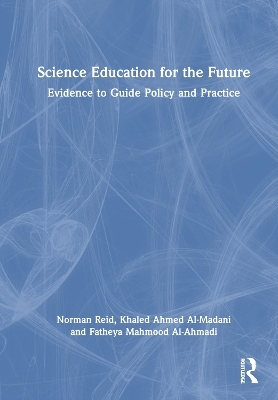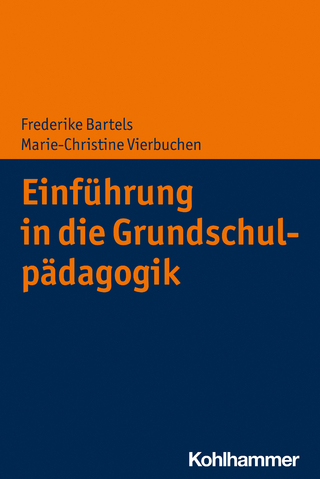
Science Education for the Future
Evidence to Guide Policy and Practice
Seiten
2025
Routledge (Verlag)
978-1-032-91706-1 (ISBN)
Routledge (Verlag)
978-1-032-91706-1 (ISBN)
- Noch nicht erschienen (ca. April 2025)
- Versandkostenfrei
- Auch auf Rechnung
- Artikel merken
This book draws on worldwide science education research to establish key principles for teaching secondary science. Considering the aims of science education, curricular themes and topics, and how these can be taught in a variety of contexts, this is essential reading for all student and practising secondary science teachers.
This book draws on the wealth of worldwide research into science education to establish a set of key principles for teaching secondary science. It considers the aims of science education and the themes and topics that should be included in the curriculum and how these can be effectively taught and assessed in a variety of contexts.
Offering a framework for the training and professional development of science teachers, the chapters answer key questions such as: How can I help my students to make sense of difficult areas in my subject? What is meant by understanding and how can I help my students achieve it? Is it possible to teach scientific thinking and how can I do it? What about learner attitudes when they are sometimes negative? What are the different ways to teach in the sciences that are effective? How can I make learning in the laboratory more efficient and effective? How can I employ assessment as a positive aid to learning?
Including reflective questions, tasks and diagrams, this is essential reading for all student and practising secondary science teachers.
This book draws on the wealth of worldwide research into science education to establish a set of key principles for teaching secondary science. It considers the aims of science education and the themes and topics that should be included in the curriculum and how these can be effectively taught and assessed in a variety of contexts.
Offering a framework for the training and professional development of science teachers, the chapters answer key questions such as: How can I help my students to make sense of difficult areas in my subject? What is meant by understanding and how can I help my students achieve it? Is it possible to teach scientific thinking and how can I do it? What about learner attitudes when they are sometimes negative? What are the different ways to teach in the sciences that are effective? How can I make learning in the laboratory more efficient and effective? How can I employ assessment as a positive aid to learning?
Including reflective questions, tasks and diagrams, this is essential reading for all student and practising secondary science teachers.
Norman Reid is Emeritus Professor of Science Education at the University of Glasgow, Scotland. Khaled Ahmed Al-Madani is Assistant Professor at the University of Bahrain. Fatheya Al-Ahmadi taught physics before being appointed to be responsible for physics education at school levels across Abu Dhabi.
1. Towards a Science for Future Societies 2. Understanding and How We Gain It 3. Science Can Be Difficult 4. Wider Goals 5. Teaching in the Sciences 6. Learning Science in Laboratories 7. Assessment in the Sciences 8. Resources and Training 9. Moving into the Future
| Erscheint lt. Verlag | 1.4.2025 |
|---|---|
| Zusatzinfo | 15 Tables, black and white; 4 Line drawings, black and white; 40 Halftones, black and white; 44 Illustrations, black and white |
| Verlagsort | London |
| Sprache | englisch |
| Maße | 174 x 246 mm |
| Themenwelt | Sozialwissenschaften ► Pädagogik ► Schulpädagogik / Sekundarstufe I+II |
| ISBN-10 | 1-032-91706-7 / 1032917067 |
| ISBN-13 | 978-1-032-91706-1 / 9781032917061 |
| Zustand | Neuware |
| Informationen gemäß Produktsicherheitsverordnung (GPSR) | |
| Haben Sie eine Frage zum Produkt? |
Mehr entdecken
aus dem Bereich
aus dem Bereich
Praxisbuch Meyer
Buch | Softcover (2021)
Cornelsen (Verlag)
CHF 33,90


